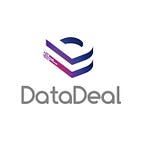DATA IS THE NEW CURRENCY
If data is the new currency, how might consumers have agency over their value exchange?
Data, data, data-in the information age, digitalization has produced an explosion in the quantity, depth, and value of data of all kinds. Bernard Marr’s piece in Forbes “How Much Data Do We Produce Every Day -The Mind-Blowing Stats Everyone Should Read” lays out the dizzying extent of global online engagement. Some highlights:
- Google processes 40,000 searches every second
- 456,000 tweets are sent every minute
- 16 million text messages are sent every minute
- 1.5 billion people are active on Facebook every day
The breadth and frequency with which we’re using the internet have produced vast amounts of data, and businesses have built varying business models around it. Big Data is here to stay and grow, but the ones who control that data owns the world.
So, who’s creating all of this data? Simple: it’s customers — both consumers and businesses — as well as the devices we all use (i.e. IoT). And, of course, it’s businesses that harness this resource, process it, package it and sell it or employ it to sell more of their own products. In other words, it’s businesses that really control the resource and the value capture from that resource-and they are capturing A LOT of value. If we just take a look at some of the “Tech Giants” in Jeff Desjardins article “How The Tech Giants Make Their Billions”, we can get a sense of the scale at which companies are profiting from (amongst other things) data as a resource.
Facebook and Alphabet are maybe the most prolific “data-collectors” of the group, employing IaaS business models and generating $55 Billion and $116.3 Billion respectively from advertising which is targeted at users as a direct result of the data they generate on those platforms (and elsewhere). That’s not to say Apple, Microsoft, and Amazon aren’t benefiting from consumer data either. Amazon in particular “is a leader in the collection, storage, processing and analysis of personal information of millions of customers”, and it uses that data to fuel its customer-centric approach through algorithms that market to consumers and encourage purchasing on the platform by presenting products that are customized to their preferences. And that’s just the right side of their business model-Amazon’s operations and logistics are powered by data as well. In 2018 they made $123 Billion in online sales.
When used to its best effect, data can prove to be a valuable asset for both: big and small business owners.
Data can describe the performance of a business, or the trends shaping the marketplace within which it competes. When reading the right way, data can provide key insights into not just how a business performs today, but how it will fare in the weeks and months ahead.
Most small businesses already rely on data today. Transaction details, stock movements, website traffic, customer behavior can all describe and predict the performance of a business. Like any currency, the more data you have, the better off you might be. However, not every business takes advantage of the data available to it, thus many miss out on the opportunity to make more informed decisions.
Data might be the new currency of business, but extracting value from it does take an effort in learning how to connect up various sources and analyze their outputs. But when harnessed correctly, it can provide invaluable insights into a business’ performance, and put more “cha-ching” into the bottom line.
